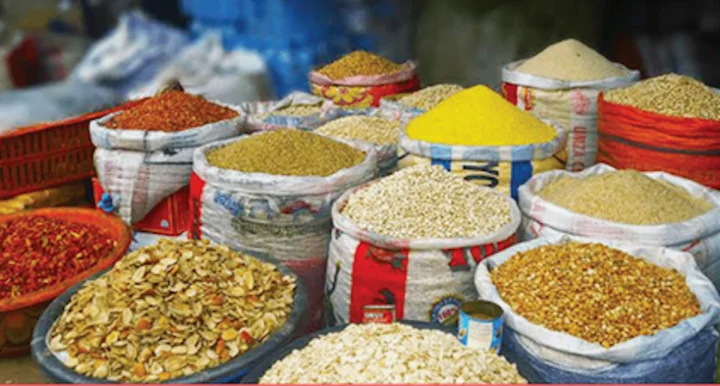The consumer price index (CPI), which measures the rate of change in prices of goods and services, surged to 21.82 percent in January 2023, up from 21.34 percent in the previous month.
The inflation rate data is contained the latest consumer price index (CPI) report released on Wednesday by the National Bureau of Statistics (NBS).
According to the NBS, the January 2023 inflation rate showed an increase of 0.47 percent points when compared to that of December 2022.
However, on a year-on-year basis, the “headline inflation rate was 6.22 percent points higher compared to the rate recorded in January 2022, which was 15.60 percent”.
Advertisement
“This shows that the headline inflation rate (year-on-year basis) increased in the month of January 2023 when compared to the same month in the preceding year (i.e. January 2022)” NBS said.
“On a month-on-month basis, the percentage change in the all-items index in January 2023 was 1.87 percent, which was 0.15 percent points higher than the rate recorded in December 2022 (1.71 percent).”
This means that in the month of January 2023, on average, the general price level was 0.15 percent higher when compared to December 2022.
Advertisement
NBS said items (on a class basis) that contributed to the increase in the headline index include bread and cereal (21.67 percent), actual and imputed rent (7.74 percent), potatoes, yam and tuber (6.06 percent), vegetable (5.44 percent), and meat (4.78 percent).
FOOD INFLATION INCREASES TO 24.32 PERCENT
The report added that food inflation rose to 24.32 percent in January 2023 on a year-on-year basis, showing a 7.19 percentage points higher compared to the rate recorded in January 2022 (17.13 percent).
The statistics body said the rise in food inflation was caused by increases in prices of bread and cereals, oil and fat, potatoes, yam and other tubers, fish, vegetable, fruits, meat, and food products.
Advertisement
“On a month-on-month basis, the food inflation rate in January 2023 was 2.08 percent. This was 0.20 percent points higher compared to the rate recorded in December 2022 (1.89 percent),” the report reads.
“This increase was attributed to increase in the prices of some food items like oil and fat, bread and cereals, fish, potatoes, yam and tubers.
“The average annual rate of food inflation for the 12 months ending January 2023 over the previous 12 months average was 21.53 percent, which was a 1.44 percentage points increase from the average annual rate of change recorded in January 2022 (20.09 percent).”
Meanwhile, Godwin Emefiele, governor of the Central Bank of Nigeria (CBN), had said the new currency redesign policy had led to a reduction in the country’s inflation rate since its introduction.
Advertisement
“The policy is typically expected to cause deflation in the market as less cash holding reduces currency outside banks and retards money circulation,” Emefiele had said.
The policy was introduced in October last year.
Advertisement
Add a comment







